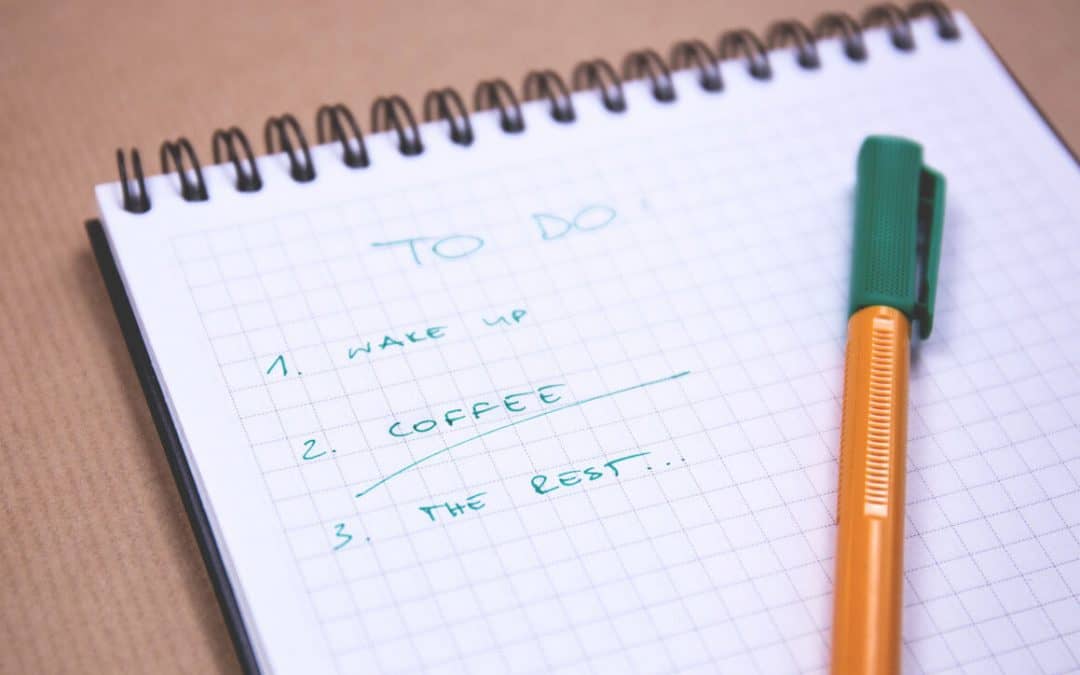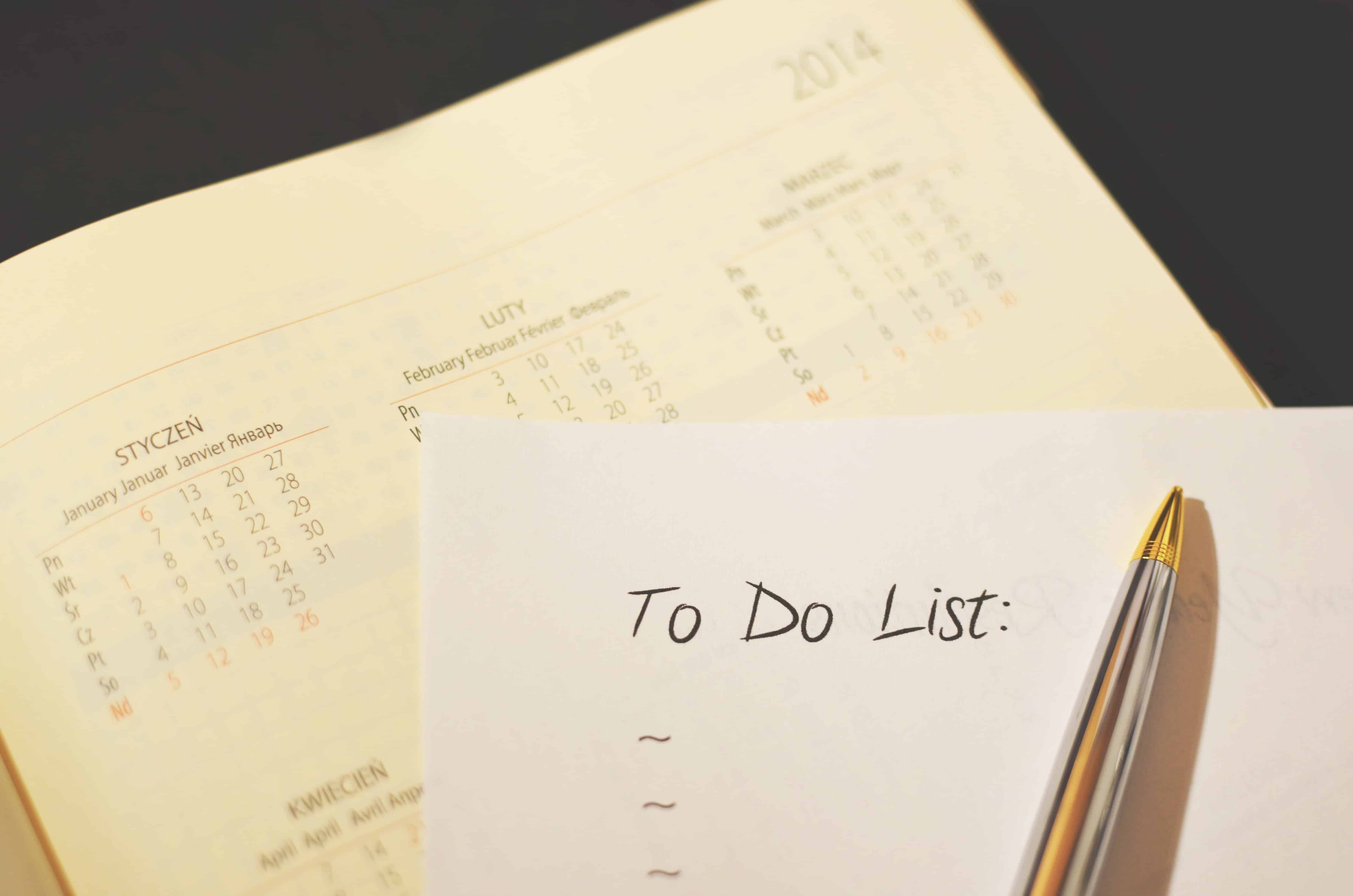Despite advances in technology that promises to make our lives easier, it seems to be getting harder and harder to find that all important pause button. Now more than ever, we are in a time of information overload. It’s therefore important, if not crucial, to our mental and physical health that we allow ourselves the time to ‘switch off’ and simply be. What’s more, with so many distractions it can be easy to feel busy and tightly wound, without having actually achieved anything you want to get done. Hence, learning how to maximise your time effectively is key to living a healthy, balanced and ultimately happier life. In this article we’ll discuss 5 powerful factors to consider when detoxifying and organising your daily life.

1.Sleeping Schedule
Sleep is important. We get told this all the time, yet how many of us actually listen?
Did you know? Nearly half of us are getting just six hours sleep or less a night. An alarming 4/5 people complain of disturbed or inadequate sleep.
Sleep problems can be a major cause of unhappiness. The sleep foundation recommends that the average adult needs at least 8 hours of sleep. No matter what reasons you might have for saying that you can manage sleeplessness, it doesn’t prevent the long-term effects lack of sleep has on your mind and body. No matter how busy you are or how packed your schedule could be, find time to rest. Take a nap. Take power naps. Five minutes rest now will allow you to reap the rewards later, of much greater productivity and creativity. It’s almost impossible to perform at your best when you’re tired. Your body has other priorities.
Of course we cannot discredit the fact that there will be looming deadlines, or some monstrous project that will leave you with no choice but to miss some sleep, but establishing good sleeping habits is crucial to your well-being.
When these time-pressed periods are rare, the body is better prepared to cope with them. They don’t cause the shock they could when you’re tired and you’re far better able to ride through them producing your best work, time after time.
Tips for better quality sleep:
- Technology – turn off your technology an hour before bed. The light emitted from digital devices tricks our brain into thinking it’s still daylight making it incredibly hard to get to sleep. If you use your phone as an alarm clock, make sure it’s set to ‘do not disturb’ or ‘sleep mode’ before bed. If your Smart Phone has a Night Shift setting that changes the screen’s color balance later in the evening, then use it. It allows your eyes to begin to rest, even before you head for bed.
- Sleep windows – our bodies naturally have periods of time or ‘sleep windows’ where our brain produces a certain chemical making it easier to fall asleep. If you struggle to fall asleep even if you’re tired, it may be caused by the time at which you try to sleep. Sleep windows can often fall between 9-11pm. Try and plan your day around your optimum sleep periods so you’re ready and rested when the right time arrives.
- Jot it down – if you find your mind is always racing when trying to sleep, studies have shown it’s better to simply get up and write it down in order for the mind to relax and avoid disturbed sleep. A notepad by the bed is a great secret weapon.
- Exercise – a good workout will get you nice and tired for evening. A good yoga workout is something accessible to anyone. It’s easier to sleep when your body is tired along with your brain.
- Set up a sleep schedule – try to go to sleep and get up at the same time every day. This helps set your body’s internal clock and optimize your quality of sleep.
- Limit caffeine and nicotine before bed – caffeine can cause sleep problems up to 10 to 12 hours after drinking it! Similarly, smoking is another stimulant that can disrupt your sleep.
- Keep your bed only for sleeping
- Keep your room dark – melatonin is a hormone used to regulate your sleep cycle. When it’s dark your brain secretes more melatonin, making you sleepy.
- Keep your room cool – most people sleep best in a slightly cool room (18 degrees) with adequate ventilation. A bedroom that is too hot or cold can interfere with your quality of sleep.
2. To Do List
For a lot of people, the power of productivity lies in the to-do list. It’s been proven time and time again to be a simple way to organize your thoughts and get sh*t done. Having a solid to-do list prepared is like waking up every day with an extra sense of purpose. It helps you set your perspective and focus for the day as well as giving you a good view of how things are going and how things should progress for the day or the week.
However, this only applicable for those who you who actually do what’s on their list. For some, to-do lists are an excellent way to procrastinate, by tricking your brain into thinking you’re doing something productive simply by writing down what you need to get done. Oh the irony!
To-do lists shouldn’t be complicated but there isn’t one ‘perfect’ way of doing them either. If you’ve tried doing a to-do list in the past and found it to be rather ineffective, it may be how you went about it, more than the art of it itself. When writing an effective to-do list we recommend applying one or more of the following techniques:
- Order in level of priority – is this task low, medium, high or top priority?
- Give time scales for each task – when does it need to be done?
- Rate in level of difficulty – how hard it will be for you to complete?
- Restrict the number of things you can list – to avoid overwhelming yourself e.g. your top 3-5 things you must get done today
Some people find starting with a small simple task to be most effective. Whether the task is simple in terms of time scale or difficulty, having a small victory which you can tick or cross off, may help to alleviate some of the initial stress or agitation you feel, gently easing you into a mind of productivity and flow. For others, tackling the larger more robust challenges head on is the most effective way to get them into a mode of productivity. Everyone is different, what’s important is finding out what works for you.
For some, strict order works best. Working through the list with no priority other than which is highest on the list. It doesn’t work for all, but it does ensure that some of the easiest tasks that can easily be overlooked get done.
3. Say No When Needed
There is a false notion that if a person is not busy then they aren’t being productive. But is being busy really the goal? The truth is that being always busy can slow you down, not to mention the negative effect it can have on your mental and physical health.
Say no when needed.
What’s more, this can be applied to people who work remotely or online. Being able to work at your own pace is one of the greatest things about working online, but at the same time it can also be a massive hindrance. Learning when and how to say no when needed is a discipline online workers need to develop. Sometimes it doesn’t hurt to say no. You acknowledge to yourself that not everything is permissible or actually beneficial for you. If you want to get your main priorities done and come to the end of your day feeling productive, don’t let unplanned and unimportant things you could have done ruin it.
Saying NO when needed is saying YES to greater productivity and a well-organised life.
4. Utilizing Tools
Using organizational tools is also one of the ways to get your daily schedule organized and to stick with your daily habits and disciplines. There are a couple of helpful tools that you may already have but haven’t maximized the usefulness of.
CALENDAR – If you have a laptop then you have a calendar. If you have a phone as well then you have two calendars. You likely have other gadgets or devices with calendars as well, and if you have one of those paper calendars that you stick on your walls or desk then you have one more. These calendars don’t exist for decoration—they are meant for helping you become productive by better planning your life. If you like having it on-the-go, use your phone’s calendar. You can write down notes, your to-do-list, and whatever else you need to remember. You can also set an alarm for each of these items to help you remember them and complete them on time.
PLANNER – If you have a busy hour-to-hour schedule, and you want to get things done, you may need a little help from this tool. People who have a planner can organize their schedules and meetings much more easily than those who don’t. A good planner is also very handy, as you can carry it with you anywhere you go.
PRODUCTIVITY APPLICATIONS – If you want to organize your schedule without needing to take all your gadgets and planners with you, you can also try using some of the productivity applications available. Having this on your phone or the gadget you always carry around will help you access it easily. The extra benefit with these is that it will also sync it with your other devices for when you can’t access it on your phone. It’s like writing it down in one place but being able to access it anywhere and anytime.
If you’re working with others, then there are also shared calendars, to-do lists and tasks, which can help divide the work and allow teams to push forward together too.
5. Let It Be Known to Others
Being organized and taking time for yourself shouldn’t be kept a secret. Tell others your plans and maybe get them to help too.
You need the help, encouragement and cooperation of those around you to really make these habits stick. Let others know about your aspiration to become more productive. Let your friends know that you have a schedule you would like to follow so that they can take note of your limitations and plan within those times and boundaries. Letting others know will minimize misunderstandings, and even turn people who may have been a distraction from your work into an ally to help keep you focused.
Getting organized with life and work is not an easy thing to do. It requires a lot of effort and discipline, especially as you begin. But once you start getting into the habit, it will become much easier—something you do without much thought or effort at all. If you learn to become consistent in these simple but important areas, and perhaps even encourage your friends and family to do the same – we’re sure you’ll see just how much it will improve your productivity and your life.
So why not start now?

Christine Katherman
Freelancer
Christine has been working in the field of freelance for just over 7 years, specializing in copy-writing, social media and voice-overs.
Describing herself as a "social media bee 24/7", Christine has an undying passion for photography and music.




